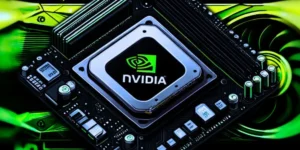IBM has announced two new quantum chips, Nighthawk and Loon, as part of its big plan to achieve breakthroughs in quantum computing by 2030. The company says these new chips are a huge step toward making quantum computers truly useful in the real world.
The new hardware, introduced alongside better methods for making chips and improved software, aims to close the gap between experimental quantum setups and systems businesses can actually use.
The Nighthawk chip focuses on what IBM calls “quantum advantage.” This means reaching a point where a quantum computer can solve problems much faster than any traditional computer. Nighthawk has 120 qubits and 218 adjustable connectors arranged in a square. It can handle computing tasks that are 30% more complex than earlier chips while keeping errors low. IBM expects this chip to support up to 5,000 “two-qubit gates” initially, rising to 15,000 by 2028. This power could help advance AI development and scientific research.
Meanwhile, the Loon chip takes a more experimental route. It shows off, for the first time, all the important hardware pieces needed for “fault-tolerant” quantum computing. This type of computing can correct its own errors. By connecting qubits both sideways and up and down, Loon explores new ways to make quantum error correction more efficient. IBM claims this is the first time anyone has demonstrated all the key components needed for large-scale, error-free quantum processors.
Jay Gambetta, a director at IBM Research, emphasized that many different parts must come together to bring truly useful quantum computing to the world. He believes IBM is the only company set up to quickly develop and scale quantum software, hardware, chip manufacturing, and error correction, unlocking game-changing applications.
To help achieve these goals, IBM moved its quantum processor production to a 300mm wafer factory at the Albany NanoTech Complex in New York. This change doubles the company’s chip development speed, allowing it to test many designs at once and making quantum chips ten times more physically complex. IBM is now treating quantum chip production with the same strict standards used for making modern mini PCs and business laptops.
IBM also improved its Qiskit tools, making quantum calculations 24% more accurate and cutting computing costs by over a hundred times. The company is also working with partners like Algorithmiq, BlueQubit, and the Flatiron Institute to help everyone track and confirm when quantum computers achieve “quantum advantage.”










